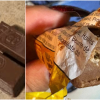By summer 2026, Tofino visitors and locals won’t be able to buy single-use plastic water bottles under one litre from any Tofino business following an Aug. 26 landmark decision from mayor and council to adopt a plastic water bottle regulation bylaw.
There are exemptions to the rule, of course.
Mobility/accessibility cases are exempt. People can still purchase water bottles sold in packaged multiples or flats.
If a State of Emergency is declared at the local, provincial, or federal level and the Emergency Operation Centre is activated, single-use plastic water bottles will be on hand; the same applies when Stage 3 water conservation measures are announced.
.jpg)
“Some people are used to travelling in places where the water is not clean. We have really good drinking water. It’s a privilege to have a choice,” said Lilly Woodbury, spokesperson for Surfrider Pacific Rim, the non-profit that launched the campaign back in 2020.
“I think it can also be habitual and also lack of understanding of the environmental and health impacts. One of the main ways we are getting exposed to microplastics is drinking water out of plastic bottles,” said Woodbury.
Tofino, or Načiks as it’s called in Nuu-chah-nulth language, is located within the territory of the Tla-o-qui-aht First Nation. The town’s drinking water is sourced from rain-fed creeks and old-growth forests on Meares Island, an area protected by ƛaʔuukʷiʔatḥ (Tla-o-qui-aht) Tribal Parks.
In 2019, the district was the first in B.C. to ban plastic straws (Ucluelet followed shortly after) and, in 2022, Tofino was the first in the province to ban plastic utensils, single-use plastic bags, and polystyrene foam containers.
This latest amendment expands the Single-Use Item Regulation Bylaw to cover plastic water bottles and builds on the federal government’s Single-Use Plastics Prohibition Regulations (SUPPR), which outline a plan to address pollution, meet its target of zero plastic waste by 2030, and help reduce greenhouse gas emissions.
In the region and around the world, plastic water bottles are one of the most common items found in shoreline clean-ups of marine debris. According to the Ocean Legacy Foundation (OLF), plastic generally takes between 500-1,000 years to degrade. Even then, it becomes microplastics, without fully degrading, says the Canadian non-profit dedicated to ending ocean plastic waste. Currently, there are about 170 trillion pieces of plastic and microplastics in the ocean, says OLF.
‘Tofino businesses are champions of the cause’
While Tofino’s plastic water bottle regulation takes effect on April 22, 2026 (Earth Day), giving local businesses time to source alternatives, Woodbury says over 70 businesses are already compliant.
“Tofino businesses are champions of the cause. We have created that cultural shift as a community and they are proud to be championing it, as they should be. We have that cultural change that makes it easier to create that regulatory change and now we can approach other municipalities,” she said.
Jeff Mikus owns Tofino’s Surfside Grill at Pacific Sands Beach Resort on Cox Bay. He told the Ha-Shilth-Sa they swapped plastic water bottles for an aluminum alternative about six years ago.
“We have such a beautiful environment here and people want to take care of it,” said Mikus. “It’s just a conscious decision of talking to your suppliers and trying to figure out what you can change and what’s easy.”
He shared that the aluminum bottle of water sells for a bit more than a plastic water bottle did, but customers are welcome to fill up their water bottle for free at the tap.
“I haven’t bought a bottle of water in a long time. I’ve got several different containers; in our kitchen, most of our staff use mason jars and add lemons or limes,” said Mikus.
“I still struggle with wooden cutlery, but you get used to it. It’s the same as going to the co-op and forgetting your bags. Habits change slowly,” he said, adding that the more people opt to buy plastic alternatives, the more the price will come down.
Maria Clark, assistant general manager at Best Western Tin Wis Resort and director for Tourism Tofino, says Tin Wis is currently reviewing their beverage service options with suppliers to “ensure that we can provide a safe and environmentally responsible alternative for guests and staff”.
“Our team is committed to supporting initiatives that protect land and waters within our territory,” said Clark, a Tla-o-qui-aht First Nation member and winner of Tofino’s 2024 Business Leader of the Year award.
“We see the district’s ban as an opportunity to further align our operations with local sustainability values and our Indigenous Stewardship principles,” she continued.
Woodbury pointed out that businesses will refill water bottles and that there are water dispensers all around Tofino and local beaches, with signage made in partnership with Tla-o-qui-aht.
“Reuseable bottles are for sale everywhere. There is no excuse. We have to keep doing our best and not give up,” Woodbury said.
Recent Ucluelet Secondary School graduate Mohkwin Masso grew up drinking the district’s high-quality drinking water.
“The water is cleaner and it’s so nice. It’s so cold too. It’s pretty nice that they are on it now because plastic is just not good for the environment. I’m hoping that this (bylaw) will do good. Reusable water bottles are just more effective. You get more water,” he said.
On July 24, 2025, Tofino Mayor Dan Law and council received a letter of approval from Tamara Davidson, B.C.’s Minister of Environment and Parks, granting council legislative authority to formally adopt and implement the bylaw.
In her letter, Davidson commended council on taking leadership on the issue.
If another municipality wants to follow Tofino’s lead and regulate single-use plastic water bottles, provincial government approval will also be required as per the Community Charter, said the Ministry of Environment and Parks.
The City of Victoria has also passed significant legislation to foster a circular economy; phased in between December 2024 and March 2026, Victoria’s Single-Use Items Reduction Bylaw requires businesses to distribute food ware accessories – including utensils, stir sticks, condiments and straws – only when requested and to serve food and beverages in reusable dishware to customers who will be dining on-site.








.jpg)








